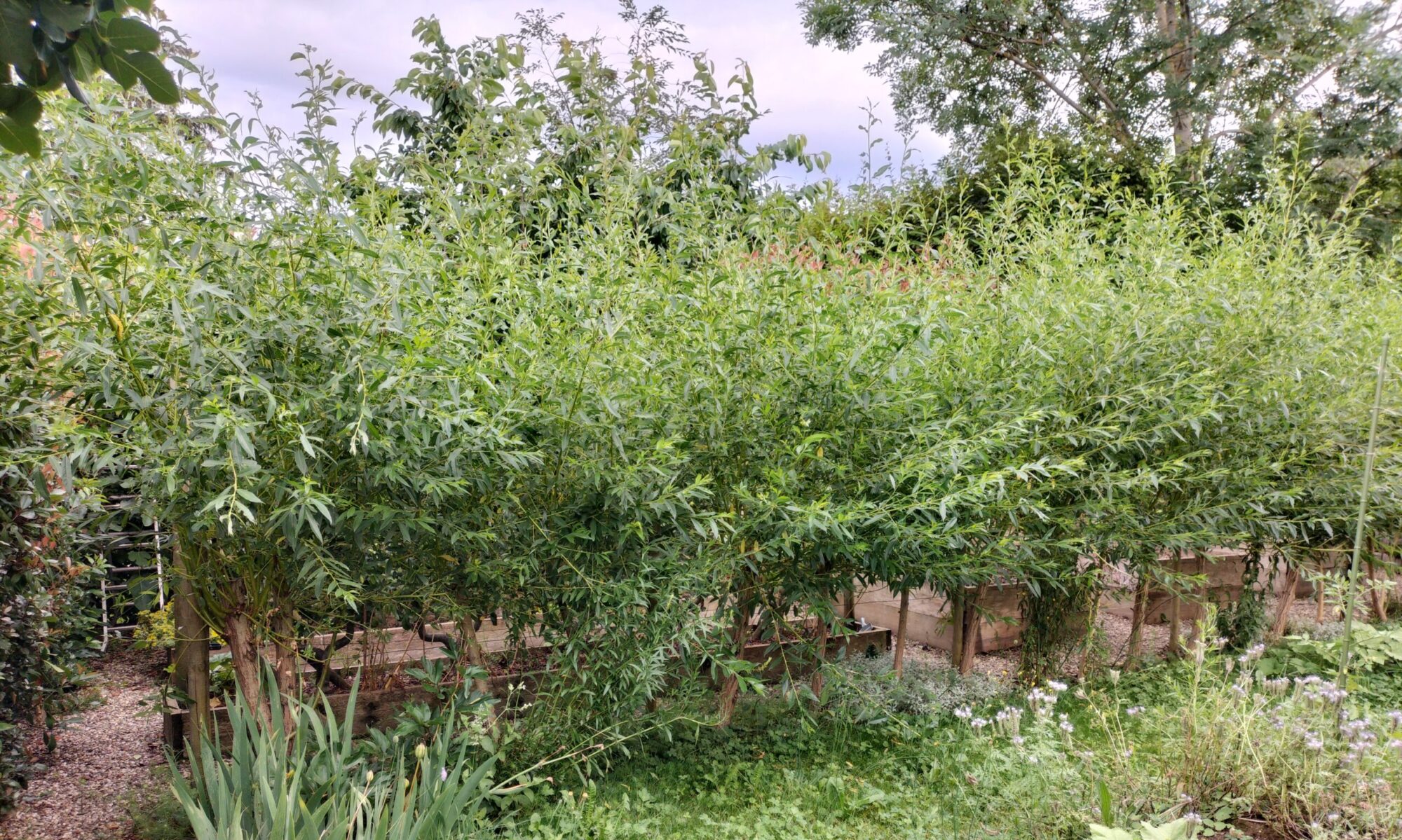

Straining the juice
Beautiful patterns in the nascent jelly
We went foraging a lot when I was a child, for blackberries, elderberries, and even firewood on a couple of occasions; the fun continued when we got home, with hot cauldrons of boiling jam and jars of jewel-like sweetness. To this day I have a very soft spot for certain preserves, elderberry and apple jelly being one of them – it has a very particular taste that doesn’t suit everyone’s palate, but it reminds me of those happy days foraging.
Not long after we moved in to our current home, I planted an elder tree in the garden, and for the last couple of years it has had enough fruit on it to make jelly, so yesterday I harvested the berries. I looked up a recipe online and stumbled across a blog post entitled Taking Care of the Elders, which brought me up short. The author of this blog encourages her readers to forage responsibly, only taking a maximum of 10% of the berries from each tree, leaving the rest for the wildlife and giving the tree a good chance of reproducing itself. I, however, practically stripped my tree bare.
In my defence, this is a tree that I had planted, not a wild specimen, and I couldn’t risk letting the juicy dark red clusters fall onto my neighbour’s pristine astroturf – but that isn’t the point. Despite having read Braiding Sweetgrass: Indigenous Wisdom, Scientific Knowledge, and the Teachings of Plants less than a year ago and totally taking on board the author’s mantra of reciprocity, respect, and restraint, I didn’t remotely reflect on that as I greedily, but at least gratefully, took all the ripe berries I could reach.
I’m clearly not the only person with this problem, as in many parts of Switzerland there are strict rules, for example about mushrooms: when you are allowed to pick them, and how many, in order to protect them for the future, which is important as mushroom picking grows in popularity. This tendency to take too much is part of a much bigger problem, as described in the book Collapse: How Societies Choose to Fail or Survive; why societies fall apart is obviously a complex question with many factors involved, but one analogy that stuck with me from this book was how often we choose to eat the ‘hen’ rather than sustainably eating her ‘eggs’.
Perhaps I can at least partly blame the culture I find myself in, with its very short-term perspective, fear of scarcity and the need to hoard to get through the winter? It pains me to say how very challenged I am by the Indian proverb “Store your grain in your neighbour’s belly”, as I am far more likely to fill up my freezer than to be generous towards others with any abundance from my garden.
I can’t promise to limit myself to only 10% of next year’s potential elderberry harvest, but I will at least remember this reflection and leave some for the birds.
